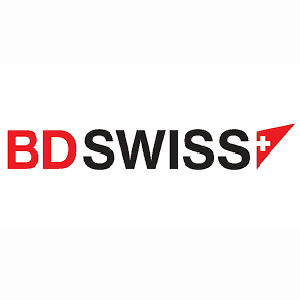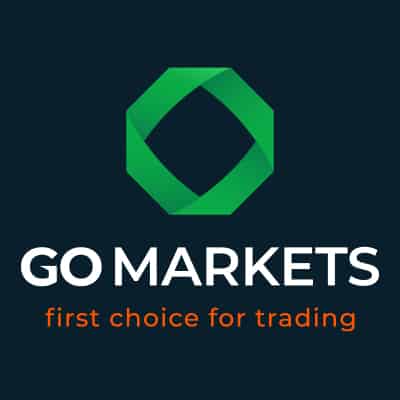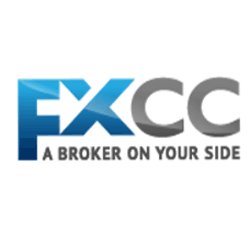NDD Forex Brokers
- What are NDD Forex Brokers?
- Best NDD Brokers
- What are ECN STP NDD Forex Brokers?
- What is True NDD Broker?
- NDD Forex Brokers List
What is NDD Forex Broker?
NDD Forex Brokers do not use a Dealing Desk in their operation and pass traders’ orders directly for execution. So the broker plays the role of the intermediary between two parties – the trader and the market itself. NDD Brokers provide traders with access to an interbank market and the positions are executed automatically via the best available price while registered as an offset. Read more about NDD MT4 via Wikipedia.
| 🏦 Spread | Spread from 0 pips + commission / Low spread from 1 pips |
| 📊 Commission | Yes / No |
| 🔒 Rejection | No |
| 💰 Slippage | Low |
What is NDD Platform?
No Dealing Desk Platform is a trading platform offered by a broker that provides direct access to the interbank rate of exchange.
Here we recommend for your consideration some crucial points of NDD trading, also have a look at the advantages and disadvantages of NDD:
- NDD Brokers build a structure where the client’s interests are independent, while the cost of trading is most often a small commission per lot or a very slight markup on the spread, alike 1 pip.
- Most NDD companies offer variable spreads due to their execution technology, hence scalpers and day traders get an easier and perfect offering to trade.
- NDD Brokers may charge commissions since they pass the spreads directly through the traders, they need to charge fees to make money for their services. Hence trading NDD may cost more in comparison to a Dealing Desk Brokers
- In some cases, when the broker fails to hedge your trade it takes the opposite side of the trading, thus operating like a Dealing Desk Broker
| NDD Trading Advantages | NDD Trading Disadvantages |
|---|---|
| Straight and Fast Execution of orders | Fees and Commissions charged |
| Trading Transparency | Costs can be higher |
| Variable Spreads | |
| Direct Connection to Interbank Market |
Top 5 Best NDD Forex Brokers
Here we select the Best NDD Brokers by category among the Best Forex Brokers with some of the best trading conditions and trustable standards of operation based on our research and expert evaluation.
- HFM – Best Overall NDD Broker 2024
- BlackBull Markets – Best Lowest Spread NDD Broker 2024
- FP Markets – Best MT4 NDD Broker 2024
- Eightcap – Best for Beginners NDD Broker 2024
- BDSwiss – Best EA Trading NDD Broker 2024
What are ECN STP NDD Forex brokers?
NDD brokers are subdivided by STP brokers and ECN brokers with access to interbank market rates. The main difference is that the STP broker route orders to different liquidity providers like banks, hedge funds, and interbank market, while the ECN broker routes itsorders to interbank markets only.
What is Ture NDD Broker?
Only Regulated Forex Brokers can provide real NDD execution (like TriumphFX), as they report regularly and are overseen by the respected authority for service delivery. Likewise, unregulated forex brokers easily fault information and may mislead their statements.
Is No Dealing Desk Broker better?
We can’t say exactly if it is better or not, it depends on the trading strategy, since Market Makers might be more suitable for beginning traders and may have better-spread offerings due to access with lower quotes, however, NDD is good for scalping or other strategies, also larger account types.
NDD Forex Brokers List
Here we found the best-regulated brokers that offer NDD execution and trading with proven records:
| Broker | Detail | |
|---|---|---|
 HFM HFM
|
Min. Deposit: 0 US$ Max. Leverage: 1:2000 Trading Platforms: MT4, MT5, HFM Trading App Regulation: CySEC, FCA, DFSA, FSCA, FSA, CMA |
1
|
 BlackBull Markets BlackBull Markets
|
Min. Deposit: 0 US$ Max. Leverage: 1:500 Trading Platforms: MT4, MT5, cTrader, BlackBull Trade, Trading View Regulation: FMA, FSA |
2
|
 FP Markets FP Markets
|
Min. Deposit: 100 US$ Max. Leverage: 1:30 Trading Platforms: IRESS, MT4, MT5, cTrader Regulation: ASIC, CySEC, St. Vincent and the Grenadines, FSP, CMA |
3
|
 Eightcap Eightcap
|
Min. Deposit: 100 US$ Max. Leverage: 1:500 Trading Platforms: MT4, MT5, TradingView Regulation: ASIC, SCB, CySEC, FCA |
4
|
 BDSwiss BDSwiss
|
Min. Deposit: 10 US$ Max. Leverage: 1:400 | 1:2000 Trading Platforms: MT4, MT5, BDSwiss Webtrader, and BDSwiss Mobile App Regulation: FSC, FSA, FSCA, MISA |
5
|
 GO Markets GO Markets
|
Min. Deposit: 0 US$ Max. Leverage: 1:30, 1:500 Trading Platforms: MT4, MT5, cTrader, WebTrader Regulation: ASIC, CySEC, FSC, FSA |
GO Markets Review |
 Errante Errante
|
Min. Deposit: $€50 Max. Leverage: 1:30 | 1:500 Trading Platforms: MT4, MT5, cTrader Regulation: CySEC, FSA |
Errante Review |
 Pepperstone Pepperstone
|
Min. Deposit: 200 US$ Max. Leverage: 1:30 to 1:400 Trading Platforms: MT4, MT5, cTrader, TradingView Regulation: ASIC, FCA, DFSA, SCB, CMA, CySEC, BaFIN |
Pepperstone Review |
 KCM Trade KCM Trade
|
Min. Deposit: 500 US$ Max. Leverage: 1:400 Trading Platforms: MT4, MT5, KCM Trade WebTrader Regulation: ASIC, FSA |
KCM Trade Review |
 FXCC FXCC
|
Min. Deposit: No minimum deposit Max. Leverage: 1:30 | 1:500 Trading Platforms: MT4 Regulation: CySEC, SVG FSA |
FXCC Review |

